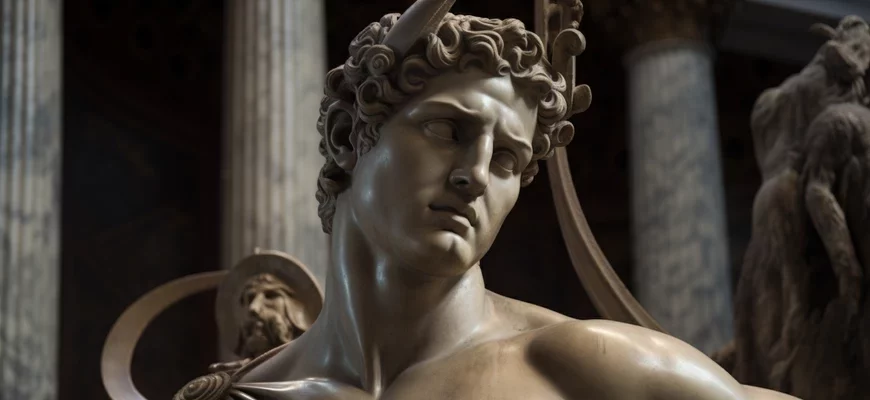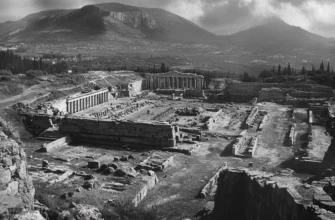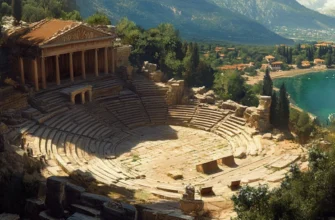Theseus was a legendary ruler of Athens. He implemented a series of reforms that contributed to the emergence of the state and the development of democracy. He united various tribes and created a single centralized government, reformed legislation, and established new rituals and traditions. The consequences of Theseus’ reforms were important for the further development of Athens as a state.
The legend of Theseus
Theseus is a legendary figure in ancient Greek mythology. According to legend, he was the son of the king of Athens and a Trojan princess. To prove his strength and courage, Theseus decided to confront the Minotaur, a mythical creature that devoured people in a labyrinth on the island of Crete. Theseus defeated the Minotaur using a club given to him by Ariadne, the beloved daughter of the Cretan king. For this, he became a national hero of Athens, and his exploits became an integral part of Greek mythology and culture.
The role of Theseus in the formation of the state in Athens
Theseus, the legendary ruler of Athens, played an important role in the formation of the state in Athens. He united various tribes into one state, creating a single centralized government that replaced the system of power based on the authority of tribal chiefs. Theseus also reformed the law and created new rituals and traditions that contributed to the stability of the state and increased the authority of the ruler. His reforms were important for the further development of Athens as a state and contributed to the development of democracy.
The unification of Athens by Theseus
Theseus, the legendary ruler of Athens, united various tribes into a single state, which was the first step towards the creation of a centralized state in Athens. He built a new residence for the Athenian king, which became a symbol of tribal unity, and organized a festival that united all Athenian citizens. This unification helped reduce conflicts between tribes and strengthen the power of the central ruler. Thus, the unification of Athens by Theseus was an important step in the formation of state power in Athens and the further development of democracy.
Administrative and legislative reforms
Theseus, the legendary ruler of Athens, carried out a series of administrative and legislative reforms that had a significant impact on the development of the state. He introduced the mandatory election of the head of the community, which reduced corruption and ensured greater accountability to the people. He also reformed the legislation by creating a new code of laws that replaced the disparate legislative acts of different tribes. This code of laws became the basis of the Athenian legal system and helped create a single set of laws for all citizens of the state. Thus, Theseus’ administrative and legislative reforms contributed to the development of democracy in Athens and were an important step in the formation of the state.
Creation of new rituals and traditions
Theseus created a number of new rituals and traditions that became an important part of Athenian culture. He established the Panathenaic Festival, which became an annual event and united all Athenian citizens. He also introduced a new sport, long-distance running, and reformed military training, which improved the combat skills of Athenian citizens.
The creation of new rituals and traditions helped to raise national consciousness and strengthen the unity of citizens, contributed to the development of the cultural life of the state, and increased the prestige of Athens in the eyes of other Greek states. Thus, the creation of new rituals and traditions by Theseus was an important step in shaping the identity and cultural heritage of Athens.
The consequences of Theseus’ reforms for Athens
Theseus’ reforms had a significant impact on the development of Athens. His political reforms, in particular the introduction of the mandatory election of the head of the community, contributed to the development of democracy and the reduction of corruption. Theseus’ reform of the law made it possible to create a single set of rules for all citizens and contributed to greater legal stability in the state.
The creation of new rituals and traditions contributed to the formation of Athens’ cultural heritage and increased national consciousness. Theseus’ reforms also improved the combat skills of Athenian citizens and strengthened the military power of the state.
In the end, Theseus’ reforms were a big step in forming the state and helped democracy, legal stability, and cultural life in Athens. Their effects were felt for many centuries and made a big contribution to the development of the ancient world.
Conclusions
Theseus – legendary ruler of Athens reforms were an important stage in the history of statehood and democracy in Athens. They contributed to improving governance and legal stability, strengthened cultural heritage, and raised national consciousness. These reforms gave impetus to the development of the ancient world and made a significant contribution to the formation of modern European culture and statehood. Overall, they showed that changes in the system of government and legislation can improve the lives of citizens and contribute to the development of the state.








